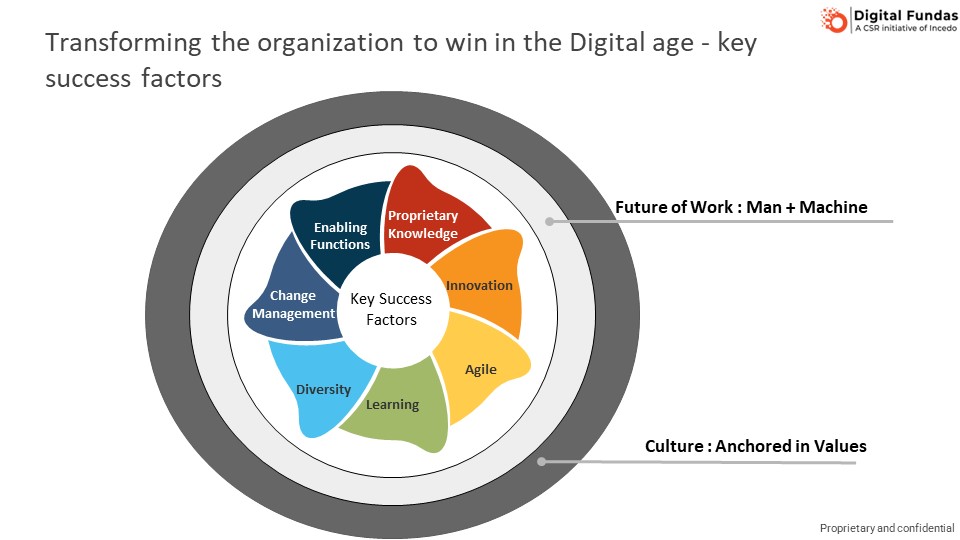
I have made the point in the earlier sections that for digital transformation to be successful, it has to be end to end. Digital transformation is not just about technology. In fact, many digital transformation programmes fail because they are conceived and executed narrowly as just technology programmes. Moreover, digital is not just about changing the customer experience; it also about changing business and operating models. Such a significant range of change cannot be successful and sustainable unless it is accompanied by organizational transformation.
Digital is about a new way of doing things. You need to move with speed, execute iteratively rather than sequentially, put more focus on experimentation and innovation, and take a lot more risks. In addition, technology has to become a core part of your DNA, whatever industry you are in. These changes cannot be sustained without a rewiring of the organizational culture. Change in the organizational culture is probably the most important enabler for digital transformation, allowing the enterprise to go beyond individual programmes and effect a more pervasive shift in the organizational DNA.
But culture takes a long time to develop, and it is not easy for an enterprise and its functions to change quickly. In the digital age, when the pace of change is very high, when new competitors are constantly emerging and business cycles are shrinking, the question is, what is the sustainable basis for an organization’s success?